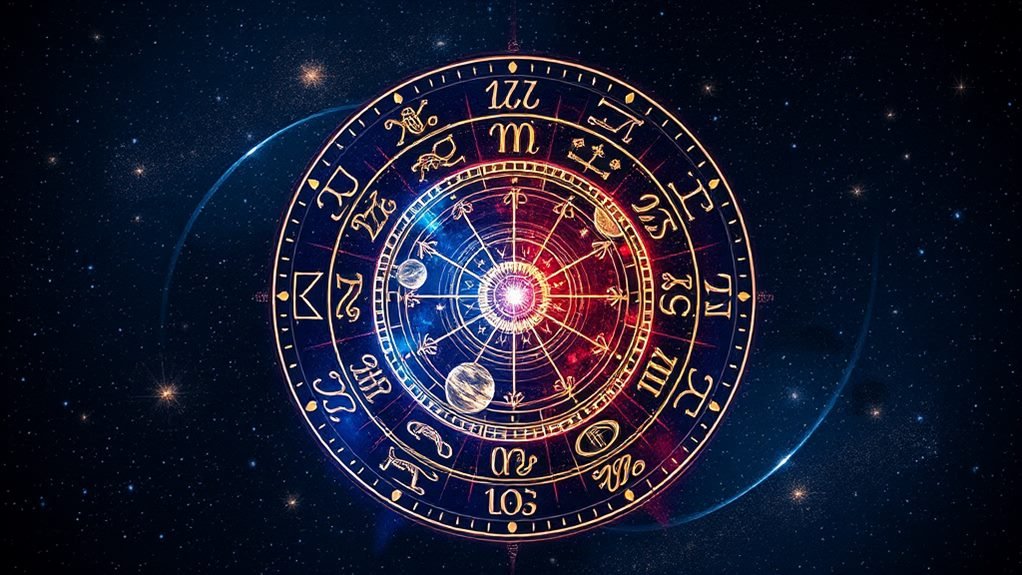How Many Types Of Astrology Are There

Astrology has been an integral part of human culture for centuries. It is a fascinating practice that helps us understand ourselves, our relationships, and our destiny. However, did you know that there are different types of astrology practiced around the world? Each tradition has its unique methodologies and approaches.
In this section, we will explore the various types of astrology, from the well-known Western astrology to the lesser-known Tibetan astrology. We will also discuss the different zodiac systems and astrological methodologies used in each tradition.
Western Astrology Traditions
Western astrology is one of the most popular and widely practiced astrology traditions. It originated in ancient Greece and Rome and evolved over time with influences from various cultures and traditions. Western astrology is based on the tropical zodiac system, which divides the ecliptic into twelve equal signs, each associated with specific personality traits and predictions.
There are various types of zodiac systems used in Western astrology, including:
| Zodiac System | Description |
|---|---|
| Tropical | Based on the position of the sun at the time of your birth, divided into twelve equal signs. |
| Sidereal | Based on the position of the fixed stars at the time of your birth, often used in Vedic astrology. |
| Draconic | Based on the lunar nodes and often used to interpret past lives and karmic patterns. |
Some of the most popular Western astrology branches include:
- Horoscopic astrology: This branch is based on the natal chart, which is essentially a snapshot of the sky at the time of your birth. It is used to predict future events and provide insights into your inner self.
- Natal astrology: This branch focuses on the birth chart and the position of the planets and houses at the time of your birth. It is used to gain insights into your personality, strengths, and weaknesses.
- Evolutionary astrology: This branch combines Western astrology with spiritual and psychological principles. It is used to gain insights into your soul's journey and life purpose.
Conclusion
Western astrology is a complex and diverse tradition with various branches and zodiac systems. It offers insights into personality traits, predictions, and life purpose based on the position of the stars and planets at the time of your birth.
Vedic Astrology Systems
Vedic astrology, also known as Indian astrology or Jyotish, is a prominent tradition that dates back thousands of years. It utilizes the sidereal zodiac system, which considers the position of the fixed stars. Unlike Western astrology, which focuses on Sun signs, Vedic astrology looks at the Moon sign as well.
One of the main features of Vedic astrology is the use of birth charts or kundli. A birth chart is created by calculating the positions of the planets at the moment of one's birth. It provides insights into one's personality, strengths, weaknesses, and life path.
| Vedic Astrology Methodologies | Description |
|---|---|
| Planetary Transits | This method involves studying the movements of the planets and their influences on one's life. Planetary transits can indicate both positive and negative events. |
| Remedial Measures | These are practices that can help alleviate the negative effects of planetary influences. They can include wearing gemstones, performing rituals, and chanting mantras. |
| Nakshatras | Nakshatras are lunar mansions that represent different aspects of life. They are used to determine auspicious timing for important events such as marriages and business ventures. |
Vedic astrology is deeply rooted in Hindu philosophy and offers insights into one's karma and life purpose. It is often used in conjunction with other spiritual practices such as yoga and meditation.
Chinese Astrology Techniques
Chinese astrology is a complex system based on the lunar calendar. It consists of twelve animal signs, with each representing a specific year. The twelve animal signs are the rat, ox, tiger, rabbit, dragon, snake, horse, goat, monkey, rooster, dog, and pig. Each sign is associated with particular characteristics and predictions.
The Chinese zodiac is widely known and utilized in Chinese astrology. It divides the year into twelve periods, each represented by an animal, and is based on a twelve-year cycle. Additionally, the Four Pillars of Destiny (Ba Zi) is another popular technique used in Chinese astrology. It utilizes the time, date, month, and year of a person's birth to calculate their destiny. Feng Shui, a traditional Chinese practice, is also a crucial component of Chinese astrology. It involves the placement of objects and structures to promote balance and harmony in one's environment.
Chinese astrology provides insights into personality traits, compatibility, and fortune. It is an ancient system that has evolved over centuries and is deeply rooted in Chinese culture and beliefs.
Mayan Astrology Practices
Mayan astrology traces its roots back to the ancient civilization of the Mayans, who developed a complex calendar system that combined several cycles. This tradition places great emphasis on understanding the energy of the cosmos and how it affects personal traits, life paths, and compatibility.
The Mayan calendar consists of two systems: the Tzolk'in and the Haab'. The Tzolk'in, also known as the sacred calendar, has 260 days and is based on a thirteen-day week and a twenty-day month. The Haab', also called the solar calendar, has 365 days and is composed of eighteen months with twenty days each, plus a final month with five or six days.
To determine an individual's Mayan astrology sign, astrologers combine the Tzolk'in and the Haab'. The resulting sign is composed of a number from 1 to 13, representing the Tzolk'in day, and a name of one of the twenty Mayan day signs, representing the Haab' month.
| Day Signs | Meaning |
|---|---|
| Imix | Water, fertility, motherhood |
| Ik | Wind, communication, spirituality |
| Akbal | Night, mystery, dreams |
| K'an | Corn, abundance, inquiry |
Mayan astrology provides insight into an individual's personality traits, strengths, weaknesses, and tendencies. It also sheds light on one's compatibility with others and their life path. According to Mayan astrology, each sign has its unique energy and represents a particular aspect of the cosmos.
"Mayan astrology offers a unique perspective on our place in the universe and how we can harmonize with its energy."
Tibetan Astrology Traditions
Tibetan astrology is a fascinating practice that combines Buddhist and Bon practices with elements of Indian and Chinese astrology. It utilizes various calculations to provide guidance on spiritual practices, personal characteristics, and auspicious timing.
The Tibetan astrological chart is based on five elements and twelve animals. The five elements (earth, water, fire, air, and space) are associated with different organs, senses, and emotions in the body. Each element and animal is assigned to a specific year, month, and day, providing insight into one's personality and destiny.
| Calculation | Description |
|---|---|
| Animal Year | Each year is associated with an animal sign, providing insight into one's personality and destiny. |
| Elemental Influences | Each person has a dominant element based on the year, month, and day of their birth, which influences their personality traits and compatibility. |
| Astrological Charts | Charts are calculated based on the position of the moon and planets at the time of birth, providing insight into one's life path and spiritual practices. |
Tibetan astrology also incorporates divination practices, such as casting dice or consulting with a divination master, to provide guidance on important decisions or events in one's life.
Conclusion
Tibetan astrology is a unique and intricate practice that provides insight into one's personality, life path, and spiritual practices. By understanding the different calculations and methodologies used in this tradition, one can gain a deeper understanding of themselves and the world around them.
FAQ - How Many Types Of Astrology Are There?
There are various types of astrology practiced around the world, including Western astrology, Vedic astrology, Chinese astrology, Mayan astrology, and Tibetan astrology. Each of these astrology practices has its unique traditions, approaches, and methodologies.
Western astrology is perhaps the most well-known and widely practiced astrology tradition. It is based on the tropical zodiac system and has various branches, including horoscopic astrology, natal astrology, and evolutionary astrology.
Vedic astrology, also known as Indian astrology or Jyotish, is another prominent tradition. It utilizes the sidereal zodiac system and incorporates various astrological methodologies, including birth charts, planetary transits, and remedial measures.
Chinese astrology is based on the lunar calendar and consists of twelve animal signs that represent different years. It incorporates various techniques, such as the Four Pillars of Destiny (Ba Zi), the Chinese zodiac, and Feng Shui. It provides insights into personality traits, compatibility, and fortune.
Mayan astrology is deeply intertwined with the ancient Mayan civilization's beliefs and practices. It focuses on the Mayan calendar system and provides insights into personal traits, compatibility, and life paths based on the combination of these calendars and celestial events.
Tibetan astrology is a unique tradition that incorporates both Buddhist and Bon practices. It combines elements of Chinese and Indian astrology with its own distinct methodologies. Tibetan astrology utilizes various calculations, such as the animal year, elemental influences, and astrological charts, to provide guidance on spiritual practices, auspicious timing, and personal characteristics.
🔴 Need Clarity on your Situation?



